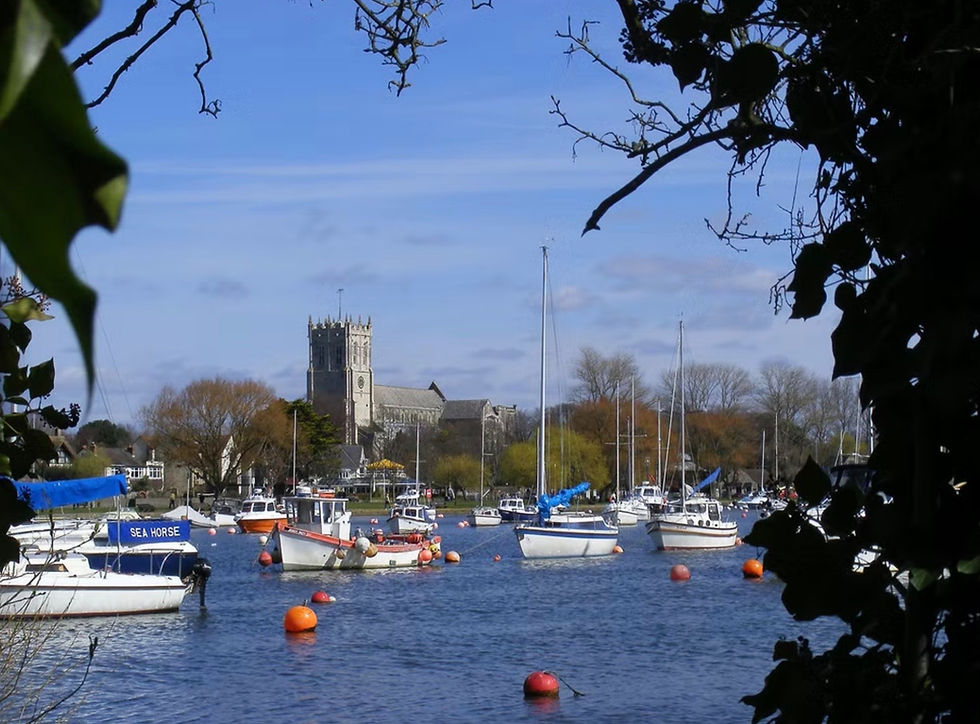What Is A Trust?
- Sean Fane

- Feb 7, 2023
- 7 min read
Updated: Jul 30, 2025

Trusts have been in use for many hundreds of years.
A trust is a legal entity, established for the administration of assets for the benefit of specific people.
One or more people (the trustees) manage money or other assets in the trust (the trust property) for the benefit of others (the beneficiaries).
The person that placed the assets in the trust is known as the settlor.
Trusts are a way of defending your assets from legal challenges, or other claims over them.
Why Set Up A Trust?
Trusts enable:
settlors to provide financial support to a loved one who lacks the ability to manage their own affairs
assets to be specifically used to provide for a beneficiaries needs, if they become unable to take care of themselves
settlors to assign assets out of their estate to reduce how much tax their beneficiaries will have to pay when they die
reduced time and costs in passing assets on to beneficiaries after death
protection of assets from legal action by creditors or other litigants
future successive generations to benefit from your assets for up to 125 years
protection for your assets from your beneficiaries in the event that they divorce
Discretionary trusts create certainty of asset distribution, whilst you are alive and also after you have died.
Do You Want Your Trust To Pay Capital, Income Or Both?
Trusts are tailored to your family’s needs, and are incredibly versatile.
You can create a trust to protect a lump sum of capital which is then distributed at a later date (within your will for example).
Alternatively you can safeguard capital sums within a trust, distributing some, or all, of the income it generates whilst keeping the capital growing for the ongoing benefit of the trust beneficiaries.
Either approach can ensure that beneficiaries receive their inheritance only when they’re ready to manage it wisely.
How Do I Set Up A Trust?
Trusts can be complicated to set-up and administer, but Fit to Retire works with the UK's leading Trust specialist organisation, to create bespoke legal documents which will administer your assets exactly the way you want them utilised.
This team of specialist trust solicitors are available through Fit to Retire to advise on the creation of trusts and all aspects of trust administration including:
trustees’ and their responsibilities and powers
how to deal with legacies to children aged under 18
protection of assets from creditors
the taxation of trusts and how to set-up efficient tax planning – related to inheritance tax, income tax and capital gains tax
How Much Does It Cost To Set Up A Trust?
Trusts can be relatively inexpensive, and depending on your circumstances can be dormant until an event settles assets into them (commonly this is through a will on the death of the settlor).
Costs incurred establishing a trust are usually recouped many times over, through the tax benefits associated with them.
And trusts are not just to mitigate tax; they are designed to give you certainty over the distribution of assets you wish to manage for the benefit of others.
Unsurprisingly through, trusts are becoming increasingly popular as the government inheritance tax lifetime allowance decreases and the value of property assets increases, creating a significant inheritance tax burden for many more people in the UK.
How Long Does It Take?
Trusts can be established relatively quickly, depending on the type of trust, the availability of the key participants and the complexity of the assets being settled into it.
Generally establishing if a trust is right for you would form part of a general estate planning conversation, and this enables any wills or lasting powers of attorney to be completed alongside establishing a trust, which can minimise the administration and ensure the documents work together to support your objectives.
Which Type Of Trust Is Right For Me?
There are various types of trust:
Bare trusts are simple trusts, used solely to pass assets on to beneficiaries. The assets are held in the name of a trustee. The beneficiary can access the assets at any time if they’re aged over 18 (England and Wales) or over 16 (Scotland).
Interest in possession trusts (also known as life interest trusts) are designed for those who would like the benefits of the assets settled into trust to be available to different people than the beneficiaries. These trusts are useful, for example, when a partner might leave their half of a shared house house to their children, but allow their partner to live in the property until they die. This type of trust can be used to mitigate care home fees for the survivor of a couple that lived together.
Discretionary trusts are the most flexible trust type. Trustees have the power to make decisions about how the trust assets will be invested and distributed, and to whom (in line with the general wishes of the settlor). That includes how much is paid out in income or capital; who receives the money (and how often) as well as any conditions that the beneficiaries must adhere to.
NRB & RNRB trusts can be created to optimise the utilisation of tax allowances
Trusts have different tax regulation sand allowances to individuals and companies, so it is advisable to speak with a specialist to understand whether they are the right structure to administer your estate planning goals.
IIP Trusts
Unfortunately, it is common for people these days to live longer lives, but whilst requiring more expensive care to help with their daily needs.
Chronic illnesses such as Alzheimer's, dementia, cancer, diabetes and heart disease, can often leave us dependant on others for income, medical bills and basic necessities such as food and clothing.
Long-term care is incredibly expensive, with estimates currently that in residential care costs average from £31,200 to £41,600 per year.
Local authorities and the NHS will fund some or all of these care costs, but only after means testing demonstrates that the person requiring care has less than £14,250 in assets (based on 2023 figures).
It can surprise many people to know that the assets they have spent a lifetime building for their retirement and their legacy can be entirely eroded within a few years of care provision.
It is possible to prevent ones assets from being diminished in this way by utilising trusts, ensuring that the authorities pay for care fees but your hard-earned assets are able to be protected.
Another benefit is that if your spouse/partner were to re-marry or enter into a civil partnership after your death, your share of your property would be preserved for your beneficiaries, and not passed on to their new partner, should anything happen to them.
This is an important benefit because getting married or entering into a civil partnership automatically revokes a will in favour of a new spouse. So if your partner remarries and does not make a new will, his/her new partner and family may benefit from your share of a property you once owned together.
If I Need Long Term Care, How Will The Council View My Trust?
Local authorities are under increasing pressure due to budget constraints. The UK’s elderly population is growing but funding for care remains tight.
This is why councils carry out means testing. They will look very closely at trusts when considering your assets and whether or not to fund your long term care.
If your trust gives you absolute entitlement to:
capital – the council will view this as an asset that you own
income only – the council will not take the capital into account
both capital and income – the council will treat both as assets.
Discretionary trusts are treated differently. The council can consider only what you receive in payment when ascertaining your means.
Personal Injury Trusts
If you have been awarded damages for a personal injury then you should consider setting up a personal injury trust.
This is useful, because any compensation you receive from an accident or injury that you are covered for could count against you if you are means-tested for Department for Work and Pensions (DWP) or local authority benefits – either now or in the future.
You may lose the benefits to which you might otherwise be entitled as a consequence of receiving the payment for the insurance policy that you took out.
A personal injury trust holds any insured compensation received into safekeeping, meaning it can't be assessed when applying for state benefit.
Without the creation of a trust, you might actually be worse off for having been awarded damages from your insurance, which would be incredibly frustrating!
It is important to note that a personal injury trust’s structure does not remove the funds from the beneficiary’s estate for Inheritance Tax (IHT) purposes but could offer additional protection for the beneficiary’s family in the future.
Managing Your Trust Properly
Trusts must be managed properly.
Trustees are bound to hold regular meetings to ensure that they’re managing the trust correctly and it is supporting beneficiaries as intended.
Being a trustee carries certain legal obligations. These include declaring your tax liabilities, and filing an annual return. Fit to Retire can appoint a professional trustee to advise you on the ongoing duties and responsibilities involved with managing a trust, and to make sure they are always optimising the assets held within them.
Contact Fit to Retire today for expert help with creating and administering a trust.
Please note you will likely require at least one face to face meeting with all Trustees in person at our offices in Dorset to set-up a Trust.
Executive Advisor, Poole
Fit to Retire Ltd is an executive advisory business based in Poole, Dorset.
We provide business strategy advice to IT business owners, and we introduce our clients to qualified financial advisers for advice on savings, investments, inheritance tax planning and protection (including insurance products).
Contact us by telephone on 01202 070071.
Contact us by email at clientcare@fittoretire.co.uk
Fit to Retire Ltd is located at: FOUNDRY, The Dolphin Centre, Poole BH15 1SZ
Whilst this article provides some information related to personal finances, it should not be construed as personal financial advice. For personal investment advice please contact Fane Financial Services.
It is important to remember that investments can go up as well as down in value, and any investment you make should be assessed for its risk profile and its appropriateness for your circumstances.





Comments